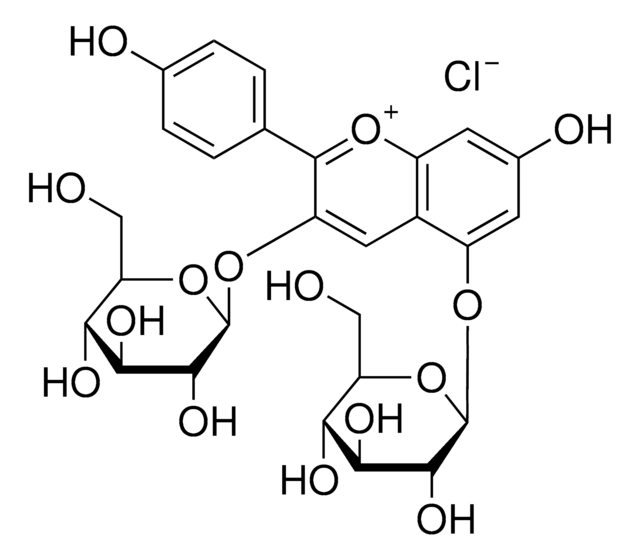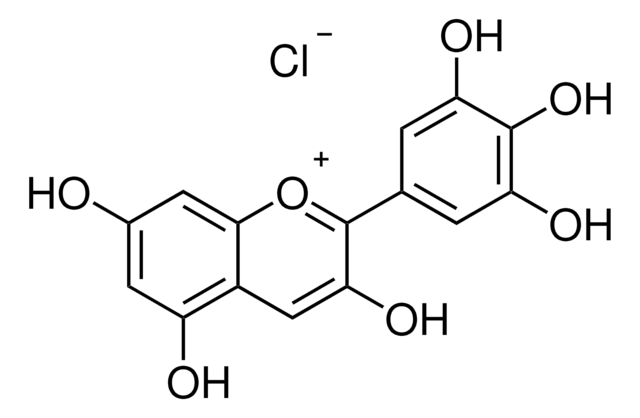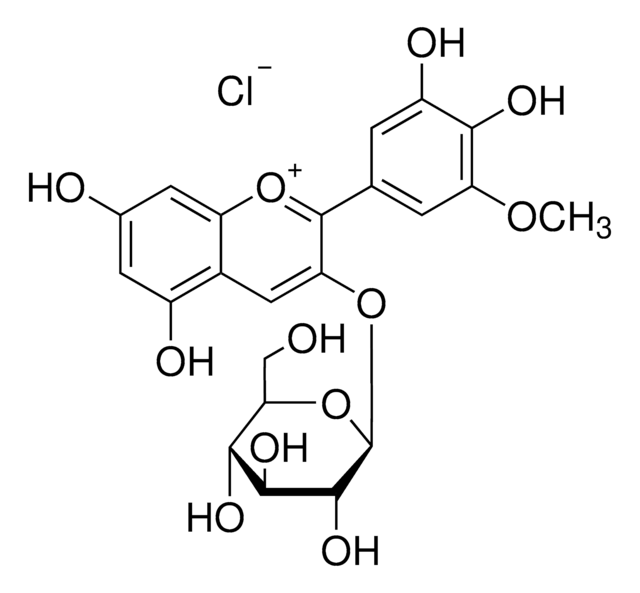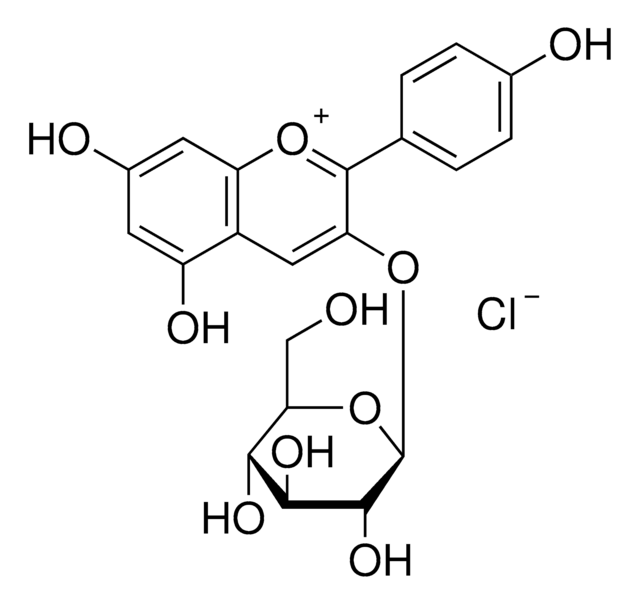P1659
Pelargonidin chloride
Synonym(s):
3,4′,5,7-Tetrahydroxyflavylium chloride, 3,5,7-Trihydroxy-2-(4-hydroxyphenyl)-1-benzopyrylium chloride, Pelargonidol chloride
About This Item
Recommended Products
form
powder
storage temp.
2-8°C
SMILES string
[Cl-].Oc1ccc(cc1)-c2[o+]c3cc(O)cc(O)c3cc2O
InChI
1S/C15H10O5.ClH/c16-9-3-1-8(2-4-9)15-13(19)7-11-12(18)5-10(17)6-14(11)20-15;/h1-7H,(H3-,16,17,18,19);1H
InChI key
YPVZJXMTXCOTJN-UHFFFAOYSA-N
Looking for similar products? Visit Product Comparison Guide
Related Categories
Application
Antioxidant and anthocyanidin:
- Found in various natural sources evaluated for inhibitory effects on colon and liver cancer cells
- Used as hyroperoxide and hydrogen peroxide scavenging substance
- Used to study relationship between structure, antioxidant capacity and redox potentials
- Studied to determine the mechanism of radical-scavenging
Biochem/physiol Actions
Storage Class Code
11 - Combustible Solids
WGK
WGK 3
Flash Point(F)
Not applicable
Flash Point(C)
Not applicable
Personal Protective Equipment
Certificates of Analysis (COA)
Search for Certificates of Analysis (COA) by entering the products Lot/Batch Number. Lot and Batch Numbers can be found on a product’s label following the words ‘Lot’ or ‘Batch’.
Already Own This Product?
Find documentation for the products that you have recently purchased in the Document Library.
Customers Also Viewed
Articles
Antioxidants protect biological systems from oxidative damage produced by oxygen-containing free radicals and from redoxactive transition metal ions such as iron, copper, and cadmium.
Our team of scientists has experience in all areas of research including Life Science, Material Science, Chemical Synthesis, Chromatography, Analytical and many others.
Contact Technical Service








